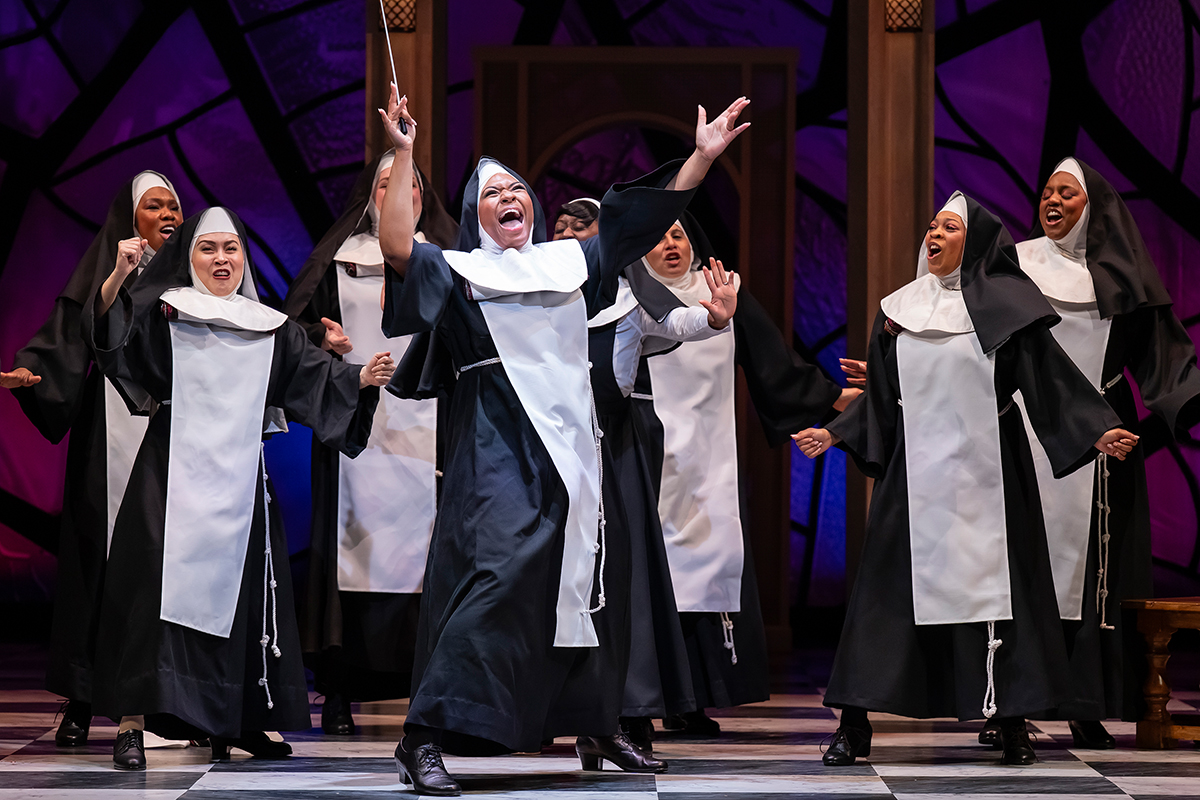25 artists that belong in the Rock & Roll Hall of Fame (but shamefully aren’t)
It's sometimes alarming to see which bands aren't yet in the Hall of Fame.
14. Eurythmics (2006)

Dave Stewart and Annie Lennox formed the Eurythmics in 1981 from the ashes of their former band, The Tourists. Their debut, In The Garden, was the first in a string of nine albums released over eighteen years that range from shadowy synth-pop to soulful rock awash with emotion. Lennox’s voice is a remarkable instrument: she can go from the icy tension of “Here Comes the Rain Again” and the #1 single “Sweet Dreams (Are Made of This)” to full-throated, passionate belting on classics like “Would I Lie To You?” and “Missionary Man.” Musical partner Stewart is a gifted songwriter, producer, guitarist and synth-wizard. Together, the duo scored massive hits worldwide thanks to their innovative sound and arresting imagery. A few of their most significant singles include the U.K. chart-topper “There Must Be an Angel (Playing with My Heart),” Lennox’s duet with Aretha Franklin on “Sisters Are Doin’ It For Themselves,” the bitterly acrimonious “Don’t Ask Me Why,” and the darkly obsessive “Love is a Stranger.” Some of their greatest moments are among the lesser-known tracks, like “Beethoven (I Love to Listen To)” from the extraordinary 1987 album Savage, and the exquisite “Julia” from 1984 (For the Love of Big Brother). Dave and Annie have enjoyed successful solo careers, but their best efforts remain the inventive, influential and always beguiling songs they created as Eurythmics.
13. Rufus with Chaka Khan (1998)

An essential funk/soul bands of the ’70s, Chicago-based combo Rufus, featuring diva extraordinaire Chaka Khan, scored an impressive twelve Top 10 hits on the Billboard R&B chart and ten Top 40 hits on the pop chart over a remarkable 14 year run. Rufus was particularly revered for its electrifying live performances, with the ferocious Khan one of the most dynamic vocalists in the business. Their self-titled 1973 debut was a moderate hit on the R&B chart, but the following year they hit paydirt with Rags to Rufus, the first of six gold albums. Their biggest album was 1977’s platinum-selling Ask Rufus. Prominent singles include the iconic funk classic “Tell Me Something Good,” “Once You Get Started,” “Sweet Thing,” “At Midnight (My Love Will Lift You Up),” “Do You Love What You Feel” and their final major hit, the 1983 smash “Ain’t Nobody.” Khan would eventually pursue a solo career that would yield her massively successful Prince cover “I Feel For You,” but it’s her work with Rufus that stands the test of time.
12. Joy Division (2004)

It’s hard to imagine another band that made a bigger impact with such a paucity of work than Joy Division. Their two studio albums straddle the decades — 1979’s Unknown Pleasures and 1980’s Closer — and are towering monuments of isolation, tension and despair. Vocalist and songwriter Ian Curtis brought the band’s success to a crashing halt in 1980 with his suicide. Joy Division also released a handful of singles, and a 1981 compilation called Still, consisting of scattered material from various sessions. In his despondent baritone, Curtis intoned soul-rending lyrics over bleak, jagged soundscapes created by Bernard Sumner (guitar and keyboards), Peter Hook (bass), and Stephen Morris (drums). The taut, claustrophobic nature of Joy Division’s music takes aim at the soul, and the drama inherent in their work, along with the serrated post-punk vibe, proved to be enormously influential. Joy Division is one of those reference-point artists, and key songs include the epic “Love Will Tear Us Apart,” “Disorder,” “She’s Lost Control,” “Decades,” “Dead Souls,” “Transmission,” and “Atmosphere.” After the death of Curtis, the remaining members switched gears and became New Order, worthy of consideration for the Hall of Fame in their own right. Curtis didn’t have long to express his inner demons through music, but what he left behind was timeless.
11. Roxy Music (1997)

Stylish, sophisticated and arty, Roxy Music is one of the most influential bands to emerge from the early ’70s British glam era. Highly original and eclectic, the band was led by ultra-suave vocalist Bryan Ferry. The core of the band included Phil Manzanera on guitar, Andy Mackay on saxophone, and Paul Thompson on drums (Brian Eno, who appeared on the first two albums, would go on to become one of the top producers in the industry). Roxy Music merged glam-rock and art-rock, with Ferry’s debonair vocals giving the music a highly-stylized sheen. Their distinct brand of rock is spread over eight excellent albums, concluding with the elegant Avalon in 1982. Classic tunes include “Pyjamarama,” “Do the Strand,” “Street Life,” “Dance Away,” “Angel Eyes” and a stirring cover of John Lennon’s “Jealous Guy,” recorded as a tribute after his murder. Roxy Music’s influence was particularly felt in the new wave and “new romantic” era of the early ’80s, with Ultravox, Japan, Duran Duran, Alphaville and many others clearly taking cues from their catalog. The band reunited to tour in 2010 and 2011, but it appears those dates may have been the last hurrah — at least until they receive their spot in Cleveland.
10. Chic (2003)

Chic has already been nominated for Hall of Fame induction on nine separate occasions between 2003 and 2015, but it seems the nominating committee and Hall of Fame voters don’t see eye-to-eye on the group’s legacy. But the committee has it right. The R&B/disco collective, centered around the enormously talented trio of Nile Rodgers, Bernard Edwards and Tony Thompson, was one of the key cogs in the ’70s disco machine. Their dual #1 hits, “Le Freak” (1978) and “Good Times” (1979), sold millions of copies and are synonymous with the genre. Chic also scored Top 10 pop hits with “Dance, Dance, Dance” and “I Want Your Love.” Between October ’77 and January ’79, they spent a total of fifteen weeks at #1 on the Billboard Dance Chart. Rodgers and Edwards went on to great success as producers, songwriters and session musicians, collaborating with numerous elite artists. Edwards died in April 1996 and Thompson followed in November 2003, but Rodgers is still going strong. He recently scored three Grammys for his work on Daft Punk’s Random Access Memories, and will release the first new Chic album since 1992, It’s About Time, later this year.
Support Metro Weekly’s Journalism
These are challenging times for news organizations. And yet it’s crucial we stay active and provide vital resources and information to both our local readers and the world. So won’t you please take a moment and consider supporting Metro Weekly with a membership? For as little as $5 a month, you can help ensure Metro Weekly magazine and MetroWeekly.com remain free, viable resources as we provide the best, most diverse, culturally-resonant LGBTQ coverage in both the D.C. region and around the world. Memberships come with exclusive perks and discounts, your own personal digital delivery of each week’s magazine (and an archive), access to our Member's Lounge when it launches this fall, and exclusive members-only items like Metro Weekly Membership Mugs and Tote Bags! Check out all our membership levels here and please join us today!





















You must be logged in to post a comment.